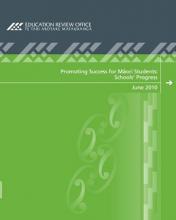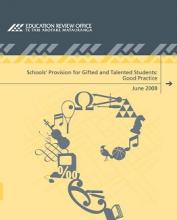Promoting Success for Māori Students Schools’ Progress
This 2010 report evaluates how schools have promoted success for Māori students since ERO’s previous national report in 2006. The success of Māori students at school is a matter of national interest and priority. ERO has published five national evaluation reports on this topic since 2001. These have identified system-wide issues and recommended steps to be taken by schools and by the Ministry of Education to promote success for Māori in education.


